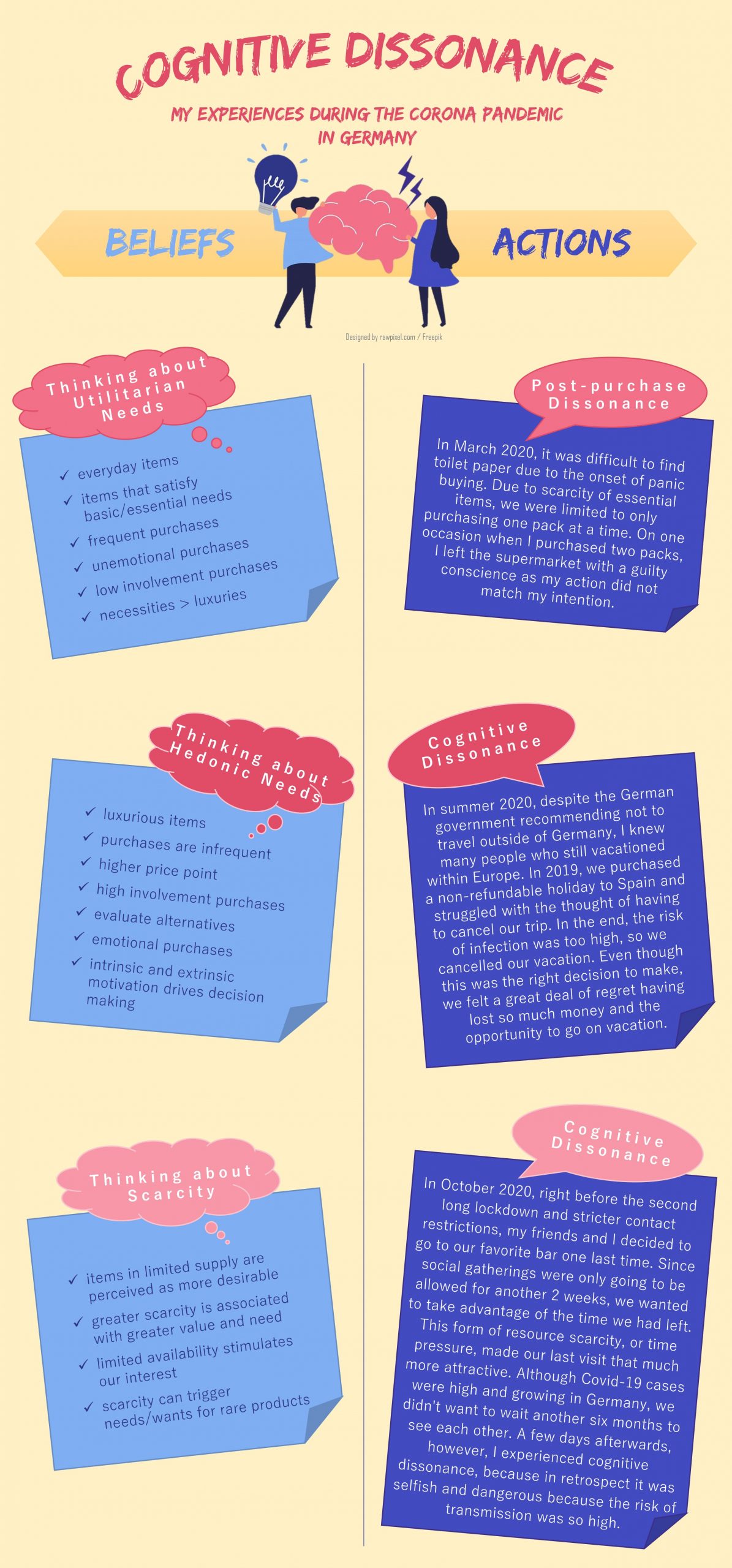Experiencing Cognitive Dissonance During COVID-19
Due to the changes brought on by the pandemic, I noticed how my consumer needs and shopping habits changed and my experiences with cognitive dissonance increased. I created the following infographic to illustrate what some of my experiences have been like as a student and consumer living in Germany.
Cognitive dissonance occurs when our actions and intentions or beliefs are not aligned. This creates a sense of discomfort and regret that affects our conscience. Post-purchase dissonance is the term used to describe the unsettling feeling we have after a regrettable purchase has been made.
On the left side of the infographic are the “beliefs” I have about my consumer experiences: I have focused on utilitarian needs, hedonic needs, and scarcity. On the right side I have shared my personal experiences of how I have experienced cognitive dissonance for each case.

By Lena Müller (2021, August)
when one's actions and beliefs conflict with one another.
the term used to describe the unsettling feeling we have after a regrettable purchase has been made.

